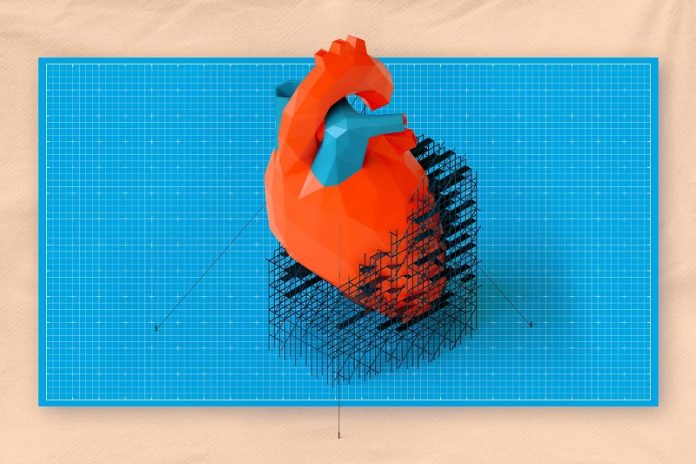
A team of scientists at UVA Health is making strides in the search for drugs that could help regenerate heart tissue after a heart attack.
Their work, led by researcher Jeff Saucerman, focuses on finding compounds that can trigger the production of new heart cells, called cardiomyocytes, which are responsible for pumping blood throughout the body.
This research offers hope for future treatments that could repair damaged hearts and possibly reverse heart failure.
Heart failure is a serious condition where the heart can no longer pump enough blood to meet the body’s needs.
This leads to symptoms like weakness, fatigue, shortness of breath, and fluid buildup in the lungs, severely impacting patients’ quality of life.
Heart failure is often caused by heart attacks or other conditions that damage heart tissue, and it is currently irreversible and often fatal.
One of the biggest challenges is that the body stops making new cardiomyocytes shortly after birth, leaving doctors with no way to repair the damage.
Saucerman and his team are determined to change this. In their earlier research, they developed a method to identify drugs that might stimulate the production of new cardiomyocytes.
They found 30 compounds that showed potential, and in their latest work, they focused on five of these compounds to understand how they work at a cellular level.
The researchers collaborated with scientists from the pharmaceutical company AstraZeneca, combining traditional methods—like observing live cells under microscopes—with advanced image-processing technology. This allowed them to study the effects of the compounds in detail.
One of the challenges the scientists faced was figuring out how these compounds stimulated cardiomyocyte production. The compounds targeted proteins that hadn’t been linked to cardiomyocyte production before, making their effects unclear. To solve this puzzle, the researchers used machine learning to analyze the data. They looked at the expression of all the genes in the genome, along with a large set of proteins, and connected the information to understand how the compounds worked.
Their findings were promising. The drugs promoted the production of new cardiomyocytes without causing toxic side effects, which is a crucial step toward developing safe treatments. These new insights have brought the scientists closer to turning their lab discoveries into real-world therapies.
“Based on these results, we’re now building a large-scale computational model of cardiomyocyte production and testing the selected compounds in animal models,” Saucerman explained. “Normally, our ability to produce new cardiomyocytes is lost shortly after birth. But one day, I hope new drugs can restore this regenerative capacity to treat heart attacks.”
This research, supported by AstraZeneca, could lead to groundbreaking treatments that help millions of people with heart disease, offering new hope for repairing damaged hearts and improving lives.
If you care about heart health, please read studies about the best time to take vitamins to prevent heart disease, and calcium supplements could harm your heart health.
For more information about health, please see recent studies that blackcurrants can reduce blood sugar after meal and results showing how drinking milk affects risks of heart disease and cancer.



